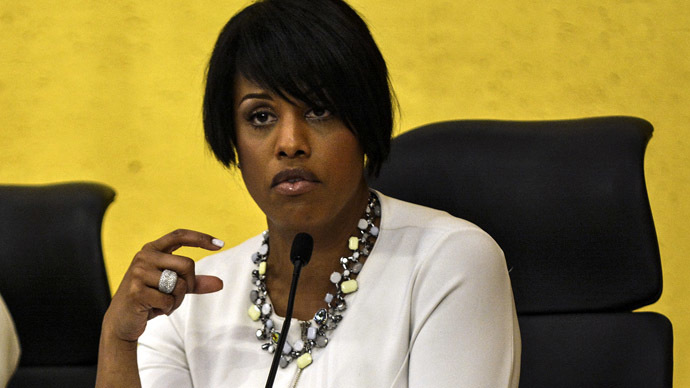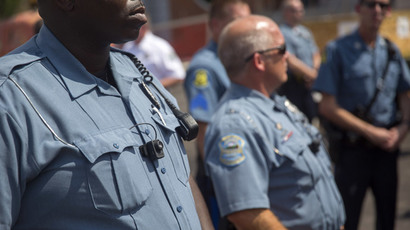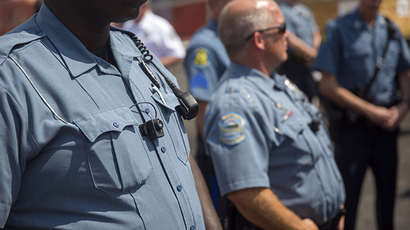Baltimore mayor wants to stop police body camera bill

Baltimore Mayor Stephanie Rawlings-Blake has said she would veto a city council bill that would require police officers in the city to wear body cameras while on duty.
Mayor Rawlings-Blake said while she is for the cameras, a task force she and Police Commissioner Anthony W. Batts established last month to study the issue should finish its assessment before the program begins.
The task force, charged with analyzing how a police body-camera program should be implemented, was arranged following a Baltimore Sun investigation that reported the city, just in the past three years, has shelled out $5.7 million as a result of more than 100 civil lawsuits that alleged some sort of police misconduct.
Baltimore City Council President Bernard C. “Jack” Young and Councilman Warren Branch proposed the body-camera bill in September after seeing footage of city police officers beating a man at a bus stop, according to BodyCameras.org.
The bill passed a city council public safety committee vote on Oct. 28 and is set to go before the entire council on Nov. 10. The bill mandates that the camera program be put in place within a year.
Yet Mayor Rawlings-Blake said recently that she was concerned the bill would preempt needed insight from her appointed task force.
"I would rather be thoughtful and right than fast and wrong," Rawlings-Blake said. "The worst thing we can do ... is to roll out a program that hasn't been thought through, and unfortunately we are dangerously close to doing that now."
Rawlings-Blake gave the task force three months to finish the report, a period some council members say is too long to wait.
"I am 100 percent in support of police body cameras," Rawlings-Blake said last week. "And residents should know that no matter what happens during the City Council process, the city is going to have body cameras."
The city council can override a mayoral veto if three-fourths of members vote to do so.
The city’s law department previously said that such a bill would violate Baltimore's ban on council interference with the police commissioner’s authority. This assessment has been challenged by Council President Young, who asked the Maryland Attorney General’s office to to review whether the council can compel the city police department to employ body cameras.
Lester Davis, a spokesman for Young, said the council wants to work with the mayor to improve the existing bill, including the possibility of a body camera pilot program in areas of the city that have received the most complaints about officers.
A body camera program is projected to cost $5 million in the first year, the Sun reported.
Rawlings-Blake and Commissioner Batts say the cameras are only part of what they believe the city should do to address police brutality. Their plan includes beefing up staff in the police internal affairs division, which handles misconduct accusations. Batts also wants more leeway from police unions to reprimand officers that are found to acted improperly.














